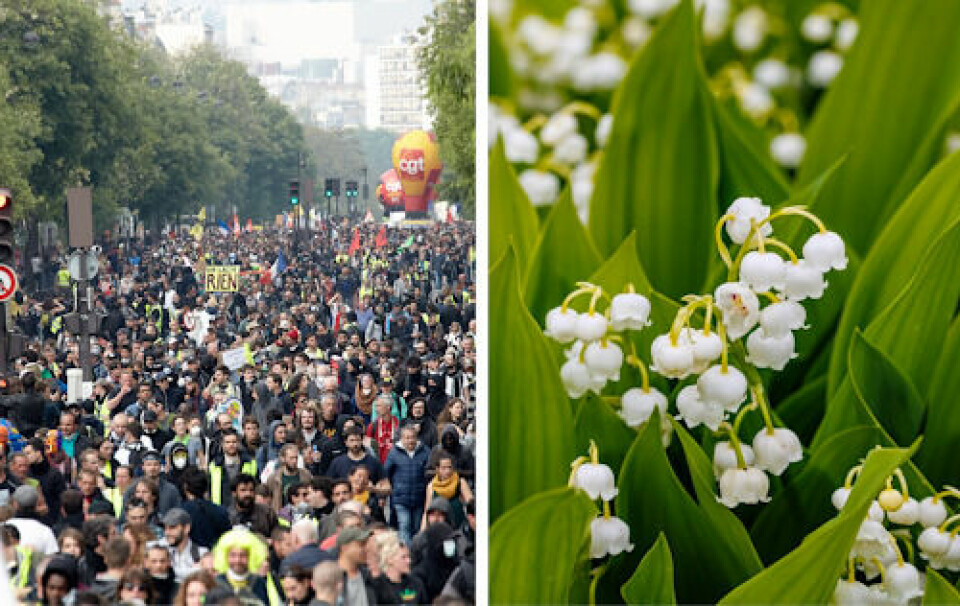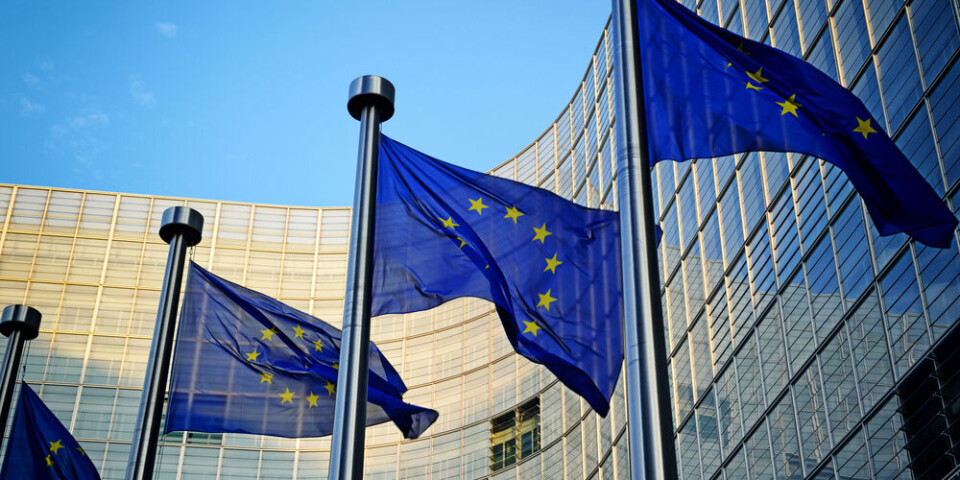-
Key Alpine pass to reopen this summer after €6m repairs
The col d'Allos in Alpes-de-Haute-Provence has been closed since 2023 due to severe weather
-
Why 500,000 people in France will soon be getting a call from health officials
A new campaign will target certain individuals with particular health conditions
-
Receive a book and a rose: France prepares to celebrate its independent bookshops
The 27th edition of the Fête de la librairie indépendante will take place tomorrow (April 26)
Alcohol sales ban as France celebrates New Year under curfew
Several departments have banned the sale of ‘take away’ alcohol, amid suggestions from hospitality experts that many could be planning rule-breaking New Year parties

The sale of alcohol is to be banned across several departments in France today in anticipation of New Year’s Eve parties, as it is thought that many could be planning to break the rules and celebrate at home.
Sales of alcohol have been banned in some departments, including in the Côtes-d'Armor, where a local decree bans the sale and consumption of alcoholic drinks from 18:00 tonight to 08:00 tomorrow (Friday January 1).
In the Pyrénées-Orientales, a ban on alcohol “to take away” has already been in place since 20:00 on Wednesday 30, and this will also last until 08:00 tomorrow. The ban also applies to fireworks sales, and the sale of flammable liquids such as petrol in cans.
A similar ban for alcohol is in place in Cher and Rhône, from 17:00 tonight. In Ille-et-Vilaine, the rule will apply from 16:00 tonight to 14:00 tomorrow.
The decree in Ille-et-Vilaine read: “Sales of takeaway alcoholic drinks is banned on New Year’s Eve, from December 31 2020 at 16:00, to January 1, 2021, 14:00, in all establishments for food distribution and in food aisles of shops for which the main activity is not food sales, in the department.”
The statement continued: “This is because the consumption of alcohol can lead to a drop of barrier methods [to protect against Covid]. New Year’s Eve can also give rise to breaches of the peace and cause road safety issues linked to excessive alcohol consumption.”
A ‘demonisation of alcohol’?
Yet, some drinks sellers have hit back at the decrees, condemning them as “lacking common sense”.
Nathalie Viet, from sellers’ union le Syndicat des cavistes, told newspaper Le Figaro: “This will be a major loss for us. People go to wine shops when they leave work. It’s part of last-minute purchases. Especially during these uncertain times, they may not necessarily have prepared their celebrations a long time in advance.
“Now they will find they are unable to enjoy themselves.”
Ms Viet said that the decrees were part of the “demonising of alcohol in our society”, and that “for the slightest thing, [authorities] now ban the sale of alcohol.”
Despite the rise in sales during the holiday period, Ms Viet said that “this will not make up for the losses that we have seen” and will see due to these New Year bans.
Private parties
The decrees have also come into effect as some hospitality groups have suggested that there are signs some will break the Covid-19 curfew rules and host private New Year parties at home.
Thierry Fontaine, president of the nighttime branch of hospitality union UMIH, said that “there has been an enormous amount of hiring” ahead of December 31, leading him to believe that many people are planning to break Covid rules and the current curfew to celebrate with private parties at home.
Meanwhile, all public restaurants, bars, nightclubs, and events venues remain shut due to Covid-19 rules.
The usual curfew will be in place from 20:00 to 06:00 across the country, with fines of €135 for anyone found to be in breach. Organising or hosting a private party that does not adhere to Covid-19 rules risks larger fines, arrest, and even jail time.
Read more: Covid-19 France: Five arrested for illegal parties
But Mr Fontaine told news service FranceInfo: “The government doesn’t trust us, but there will be New Year’s Eve parties everywhere in France. People are going to celebrate. The number of events that will be organised tonight is enormous.”
Rule breakers
Some people have indeed anonymously spoken to Le Figaro, to explain their reasoning for breaking - or bending - the rules tonight.
While private parties “cannot be prohibited”, the Ile-de-France prefecture has said, recommendations in France still suggested that groups be limited to six adults maximum, and that physical distancing and other barrier methods should still apply (see below for the full list of recommendations).
One, a 50-year-old teacher named Florence, said that she is planning to have dinner with some old friends in Paris. The evening will include, she said, music, a menu including scallops and Champagne, but no hugging or kissing at midnight - but an overnight stay to allow for the curfew.
She said: “We will all sleep there. We will be fewer than a dozen, so it will be possible. We will have blow-up beds and futons. Some will come with their own sleeping bags.”
Another Parisian, 35-year-old Antoine, said that he and around a dozen friends will celebrate in an apartment, and stay over at an Airbnb 250 metres away from the party.
He said: “I am not a massive New Year’s Eve fan, but it’s important to recognise symbolic moments. In this complicated time, which everyone wants to see the back of, this in an important outlet. And the risk of being caught [in breach of curfew] are very low.”
A Lyon business owner, 30-year-old Louis, has decided to disregard the curfew rules.
He said: “It is an attack on freedom. Anyway, it’s useless because all it does is slow the spread of the virus, which is inevitable. I am prepared to pay a fine and continue to move around as usual. On New Year’s Eve, as with other evenings, I have decided to behave normally, how I wish.
“I’m going to see friends, without making a big deal out of it, and will come back home afterwards.”
Another, 18-year-old Tabitha, a student, said that her parents had allowed her to go to a party with around 30 other young people to celebrate New Year.
She said: “I haven’t been to an event for three months. I hardly meet anyone. There is no moment to relax. We just work. It’s so hard. I feel as though I am missing out, and am not living a real student life.”
To avoid curfew issues, she said that everyone will stay at the party until dawn; and the party will also keep the music low to avoid complaints from neighbours or the possibility of alerting the police to the gathering.
This is despite the junior minister for young people, Sarah El Haïry, writing an open letter on news website the Huffington Post, calling for people to “not drop their guard” now. She said: “This evening is symbolic, but we must not put the first weeks of January in danger.”
Similarly, some local leaders - including Jean Rottner, Grand-Est regional president of opposition party Les Républicains - have called on the government to impose local lockdowns immediately in areas that are most-affected by Covid-19, and not wait for January 2 as suggested.
Read more: Covid France: No lockdown but new curfew, and rules remain
Night time calls
Some owners of night time venues have even called on the government to allow them to reopen.
One owner of a nightclub in Lyon told Le Figaro: “We have worked with the ministry of health, we have worked to create a health and sanitary protocol that would allow us to better respect the barrier methods in our club, than [would be possible] in an Airbnb or secret party.
“We are a lot less contaminated than other places.”
Official New Year’s Eve recommendations in France
- The curfew from 20:00 to 06:00 remains in place, with no exceptions for New Year
- Those caught outside without a valid exemption form risk a fine of €135
- You are recommended to stay at home, and celebrate with a small number of friends and family
- Private parties are permitted, but a maximum of six adults is recommended, and everyone must arrive by 20:00 and stay until at least 06:00, to respect curfew
- All rooms should be ventilated for at least 10 minutes every hour
- Everyone indoors should wear masks, and stay physically distanced
On December 10, Prime Minister Jean Castex said: "The objective...is to limit the number of people present as much as possible.”
Related stories
Covid-19: Rules for New Year celebrations in France
Why is New Year called the Réveillon de la Saint-Sylvestre?
Covid France: No lockdown but new curfew, and rules remain
























